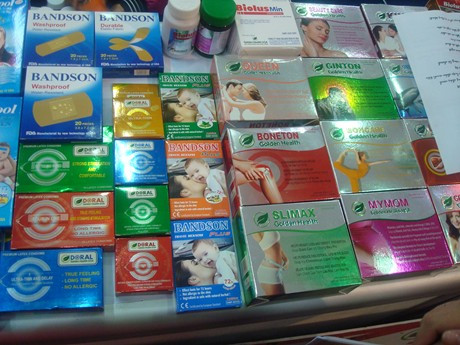Functional foods: "Miracle drug" or "sinner"?
Currently, there are two opposing trends regarding functional foods (FF): One is over-trusting, turning FF into a "miracle drug" and the other is boycotting, absolutely "saying no" to FF.
 |
| There are two opposing trends in dietary supplements. Photo: VGP |
| RELATED NEWS |
|---|
Mr. Dang also said that the close coordination between the Ministry of Health and the Ministry of Information and Communications in reviewing the production, business and advertising activities of dietary supplements has contributed to cleaning up the "bad apples" in the dietary supplement industry.
Not only are companies that produce and trade dietary supplements being fined, but some media agencies have also been held responsible before the management agency for not carefully checking the advertising license for dietary supplements before posting, Mr. Dang said.
According to Mr. Dang, dietary supplements have a great effect in supporting and taking care of the patient's health if understood correctly, done correctly and used correctly. In particular, during the treatment process, doctors can be the ones to directly advise patients and the community on using dietary supplements in combination with treatment drugs to support treatment or prevent disease recurrence.
However, according to many experts, the management of dietary supplements in our country currently has many shortcomings. Although the Food Safety Law has regulations on dietary supplements, the guiding circulars are still at a standstill.
Regarding this issue, Mr. Tran Quang Trung, Director of the Department of Food Safety (Ministry of Health), admitted that the issuance of circulars guiding the management of dietary supplements is slow because the management agencies want to do it "surely".
The reason is that there are still issues that have not found a "common voice", so lawmakers need more time to discuss thoroughly and objectively, especially the issue of whether doctors should prescribe dietary supplements or not.
“If the regulation requires prescription for dietary supplements, there will be conflicts such as prescribing them together with drugs or prescribing them separately. If they are prescribed together with drugs, people may be taken advantage of (not knowing whether they are drugs or dietary supplements). If they are prescribed separately, it will violate the Food Safety Law, because this law stipulates that dietary supplements do not require prescription, but must be prescribed with the advice of a doctor or physician,” said Mr. Trung.
On the other hand, prescribing dietary supplements can easily lead to negative consequences, because then the doctor will be like a pharmacist selling medicine.
With the above issues, Mr. Trung said that it is necessary to discuss to come up with the most objective solution when issuing a circular guiding the management of dietary supplements.
The Vietnam Dietary Supplement Association has just issued a set of standards for good manufacturing practices for dietary supplements (GMP-HS) to ensure good control of the quality of dietary supplement products. GPM-HS is one of three mandatory standards for companies researching and producing dietary supplements, including: Good agricultural practices and harvesting practices for herbal dietary supplements; Good manufacturing practices for dietary supplements, and Good transportation practices for dietary supplements. If these three standards are met, functional food products made in Vietnam will have the opportunity to find markets in ASEAN countries and the world. |
According to chinhphu.vn






